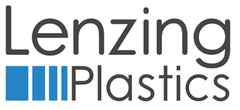Looking for PTFE experts with more than 40 years of experience?
We manufacture PTFE films, tapes, yarns, fibers and tubes for a broad range of applications! We have standard types of suture yarn and knitting yarn. But we also do customized solutions for many leading medical device manufacturers in the world.
PTFE is your material of choice? Then contact us for the implementation in your device!
www.lenzing-plastics.com/en/industry-sectors/medicine-hygiene
+43 7672 33000 3974
IS IT ePTFE OR PTFE?
This is a rather complicated question many people ask us. Can you define ePTFE? Most people answer: Yes, it means expanded PTFE.
All PTFE yarns are stretched and “expanded”, otherwise they have extremely low tenacity level. So it is more a question of how porous a material is. But there is no clear definition at which level it starts to be ePTFE. We can offer products on very different density and porosity levels.
We can produce high dense suture yarns, which have a rather closed surface. They are perfect for dental operations, where tissue ingrowth is not the thing you are looking for. And we achieve a diameter to strength relation that fits into USP/ EP classes. But we also do low density products with higher porosity.
In our lab we have a REM to look at Inter-Nodal-Distance, a commonly used value, that many people specify for their products to define porosity.
Just contact us with your question/ challenge:
we will work hard to solve it!
Covered stent
Once the diameter of the vessel is low, PTFE is the common material of choice to cover stents. Now is the question: what’s the best way to get a PTFE cover attached to the frame. Some products on the market use wrapped ePTFE film, some use ePTFE tubes.
The perfect solution highly depends on the concrete design as well as available production technology. In any case Lenzing Plastics is a good partner to discuss your needs and work on a PTFE solution.
www.lenzing-plastics.com/en/industry-sectors/medicine-hygiene/stents
TAVI and TMVR –
PTFE is the perfect partner
The construction of transcatheter heart valves is a special challenge for both: Materials and manufacturing processes. The crimping process requires materials that can be compressed to smallest diameters. Once re-expanded in the body they should bring their performance for a long time. PTFE is a very soft and smooth material. So it is rather easy to compress and it is also very slippery.
The long-term stability of PTFE is outstanding. Due to its chemical structure and no additives at all, there is closed to zero polymer degradation. Additionally, there is only a very small difference between Knot-pull strength values and strength without knot. Especially when sewing valves with many knots, this is an important risk reduction factor.
Please contact us to discuss the sewing material of choice for your valve!
Visit Us At: WWW.LENZING-PLASTICS.COM
